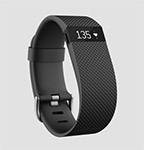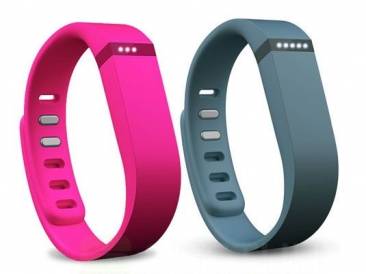Do You Wear A Step Counter On Your Wrist?

Do You Wear A Step Counter On Your Wrist?
According to the latest research, in 2015 the dollar and unit sales of activity trackers grew by 110% and 85% respectively.
Exercise & Sports Science Australia congratulates every Australian who has purchased a device but warns that it may not be a solution for everyone.
'It's great to see the phenomenal growth in wearable activity trackers, as essentially it means more and more Australians are concerned about how much they move during the day," says Anita Hobson-Powell, CEO of Exercise & Sports Science Australia (ESSA).
'On the flip side, we want to make sure that people realise that 10,000 steps a day might not be the ultimate answer for many Australians who are trying to improve their health."
'It's important to understand that -one size does not fit all'. Yes, these activity trackers are great because they give you the ability to monitor your steps in real time, but walking 10,000 steps alone may not be right for everyone," explains Anita.
The 2007-08 Australian Health survey indicated that one-third of the population (that's 35% or 7 million people) reported having at least one chronic condition (e.g. asthma, type 2 diabetes, coronary heart disease or arthritis).
This statistic means essentially one in three Australians have a chronic condition that may determine what type and level of exercise is required to keep them at optimum health.
'As an example, a person with arthritis may not be able to achieve a lot of steps and would be better working in a pool that is easier on the joints. Or if someone is morbidly obese then 10,000 steps may not be achievable and could potentially be dangerous," explains Anita.
'Another key issue is that of long term behavioural changes. Activity trackers may provide a sudden spike in activity, yet will this last over a few months or years?"
ESSA conducted a brief survey of a sample of its members and the majority agreed that activity trackers were fantastic for creating awareness, however without expert input can have limited long terms effects on health.
'What we want people to understand is that wearable activity trackers are extremely useful tools that will help you be more aware of your physical activity levels. However, for those with more serious health concerns you should seek the advice of an accredited exercise professional before making any long term lifestyle modifications."
Seven Key Questions to Answer Before Increasing Your Exercise:
Has your doctor ever told you that you have a heart condition or have you ever suffered a stroke?
Do you ever experience unexplained pains in your chest at rest or during physical activity/exercise?
Do you ever feel faint or have spells of dizziness during physical activity/exercise that causes you to lose balance?
Have you had an asthma attack requiring immediate medical attention at any time over the last 12 months?
If you have diabetes (type I or type II) have you had trouble controlling your blood glucose in the last three months?
Do you have any diagnosed muscle, bone or joint problems that you have been told could be made worse by participating in physical activity/exercise?
Do you have any other medical condition(s) that may make it dangerous for you to participate in physical activity/exercise?
If you answered -yes' to any of these questions, make sure you consult with your local Accredited Exercise Physiologist before increasing your physical activity levels.
Have You Seen This?
MORE












